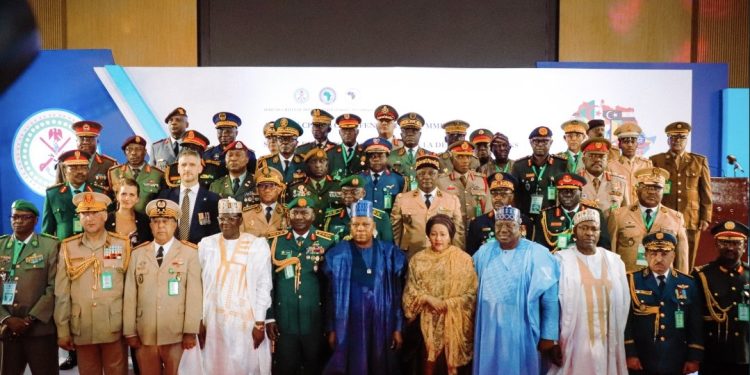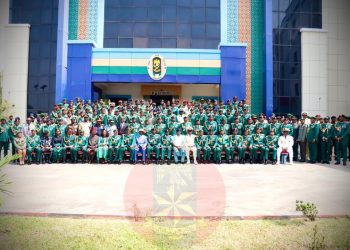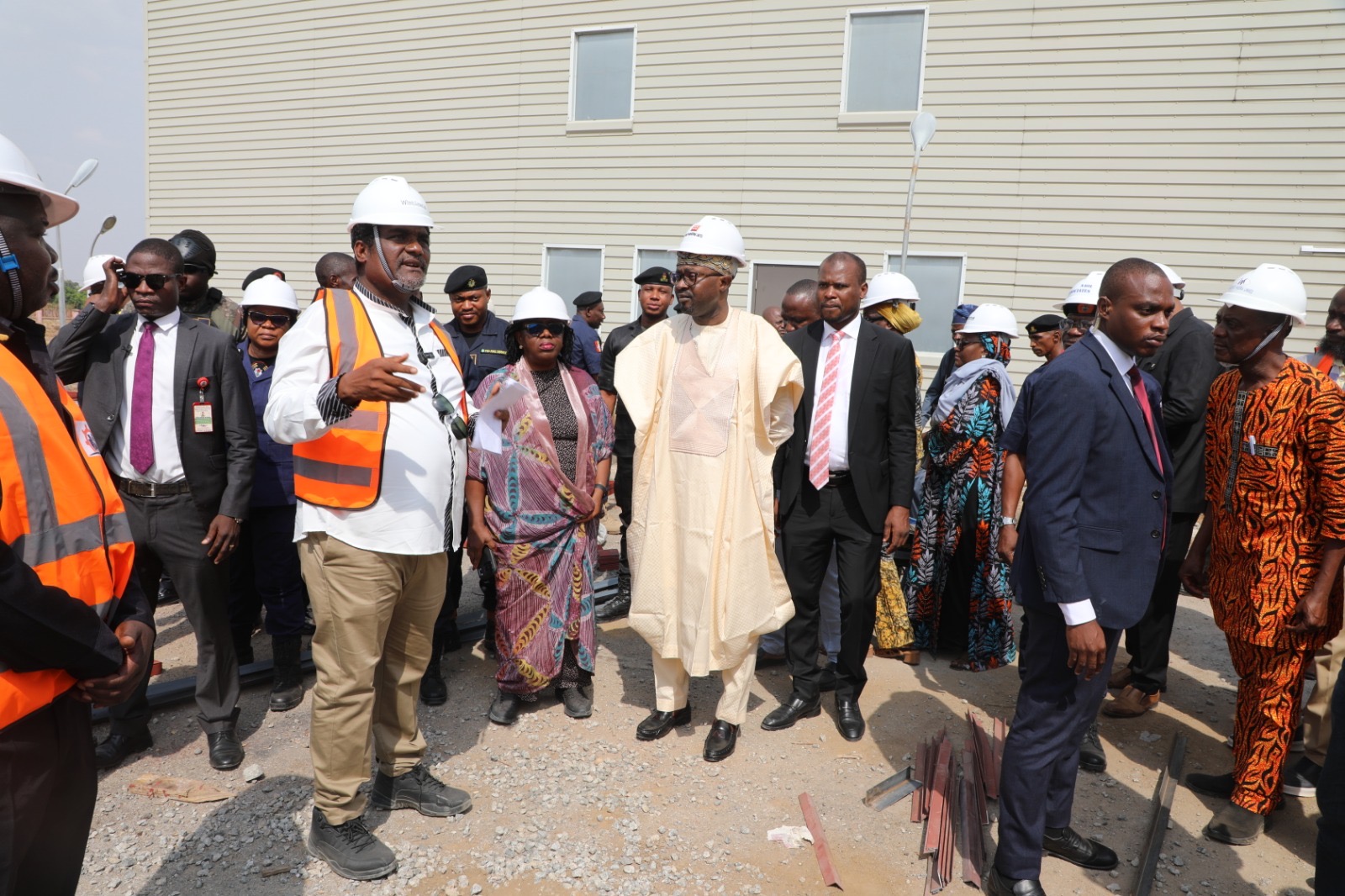…as Gen. Musa stressed that Africa’s true security lies in building its own defences against threats from within
By Nkechi Eze
Abuja, Nigeria, transformed into the epicentre of Africa’s collective security aspirations as the nation’s capital welcomed defence chiefs from all 54 African countries for the Maiden African Chiefs of Defence Staff Summit, held at the Bola Ahmed Tinubu International Conference Centre. Themed “Combating Contemporary Threats to Regional Peace and Security in Africa: The Role of Strategic Defence Collaboration”, the landmark summit symbolized more than an assembly of uniforms and titles, it was the birth of a continental security consciousness.
For the first time in history, Africa’s top military leadership sat under one roof, shoulder to shoulder, in a gathering that underscored the continent’s resolve to confront terrorism, insurgency, piracy, cyber warfare, transnational crimes, and economic sabotage. Against the backdrop of decades in which Africa’s conflicts were too often defined or dictated by external actors, the Abuja summit signalled a new doctrine: that Africa’s future security must be crafted by Africans themselves.
The opening ceremony was suffused with the weight of history. Vice President Kashim Shettima, representing President Bola Ahmed Tinubu, declared the summit open with an impassioned call for continental unity beyond borders. He described the event as a “historic gathering of Africa’s guardians united by destiny rather than geography” and warned that Africa’s myriad threats from insurgency in the deserts to piracy on the seas and cybercrime in the digital space, respect no boundaries. “Our response, therefore, must transcend borders,” he said.
The Vice President called for a new doctrine of continental defence rooted in trust, intelligence-sharing, joint training, harmonised doctrines, and interoperable systems. He urged African nations to embrace cyber defence, artificial intelligence, indigenous defence innovation, and military-industrial collaboration. “Africa must not remain consumers of technology; we must become creators and owners of the tools that will secure our tomorrow,” he declared, urging private sector investment in defence as a strategic necessity.
Paying tribute to the sacrifices of African soldiers, Shettima proposed the institutionalisation of an African Chiefs of Defence Forum to serve as a permanent platform for dialogue, cooperation, and operational coordination. He urged African leaders to rise above divisions and build a continent where peace becomes the norm, the language of war yields to progress, and dignity is secured by collective resolve.
In his welcome address, Nigeria’s Chief of Defence Staff, General Christopher Gwabin Musa, reinforced the urgency of the moment with a blunt reminder: “The enemy is within; hence, we must be the architects of our defence and security.” His words struck at the heart of Africa’s fragile security architecture, where insurgencies and extremism often thrive within communities before spilling across porous borders. He emphasised intelligence-sharing, joint operations, and regional interoperability, while also stressing the crucial role of the private sector in innovating and resourcing modern defence.
From the global stage came voices of encouragement and caution. Deputy Secretary-General of the United Nations, Ms. Amina J. Mohammed, hailed the summit as a historic step in aligning African security with sustainable development. “There can be no development without peace, and no peace without justice,” she said, reminding leaders that poverty, inequality, and climate vulnerability remain the root causes of instability.
The President of the ECOWAS Commission represented by Ambassador Abdel-Fatau Musah, Commissioner for Political Affairs, Peace and Security, raised alarm over the disproportionate burden borne by Africa in the war on terror, citing the Sahel and Lake Chad as epicenters of global insecurity. He stressed that the Sahel accounted for over half of terrorism-related deaths on the continent in 2024, calling for deeper funding commitments, particularly from the United Nations. “African-led counterterrorism must be backed by global responsibility,” he argued.
Professor Ibrahim Gambari, veteran diplomat and former UN Under-Secretary-General, gave one of the most sobering interventions. Warning that over 1,000 insurgent groups are active across Africa, he insisted that no external actor can secure the continent. “No one can do for Africa what Africans must do for themselves,” he said, urging leaders to secure not just borders but human security by addressing food insecurity, unemployment, and weak institutions that breed extremism.
Adding a different dimension, David Wiseman, senior leader of the Invictus Games Foundation and former British Army officer, celebrated Nigeria’s leadership in sports recovery for wounded soldiers. Drawing from his own experience as a war veteran, Wiseman hailed sports as a powerful tool of rehabilitation and morale, noting Nigeria’s achievements at past Invictus Games and the establishment of the Armed Forces Invictus Centre in Abuja. He extended an invitation for African militaries to join the Invictus movement, envisioning a day when African teams will compete proudly on the global stage.
Beyond speeches, the summit featured an exhibition of African-made military technologies, underscoring a shift from dependence on external suppliers to homegrown innovation. The event’s symbolism was clear: Abuja had become the stage where Africa began to turn the rhetoric of unity into tangible pathways of collaboration.
As the curtain fell, what lingered was not merely the words of statesmen and generals, but a shared conviction. Africa’s security, long threatened by division and dependency, is now being redrawn as a continental mission anchored in self-reliance, innovation, and solidarity. In Shettima’s resounding declaration that “Africa’s security can no longer be outsourced” and in General Musa’s reminder that “the enemy is within,” the summit left Africa with both a warning and a mandate, to seize ownership of its destiny.
















